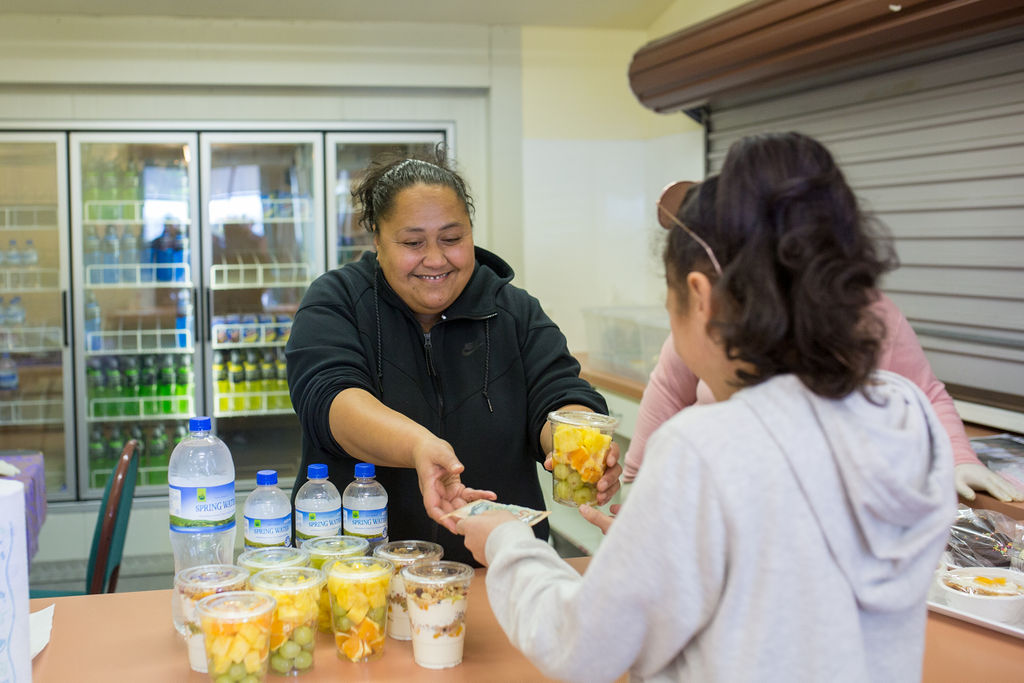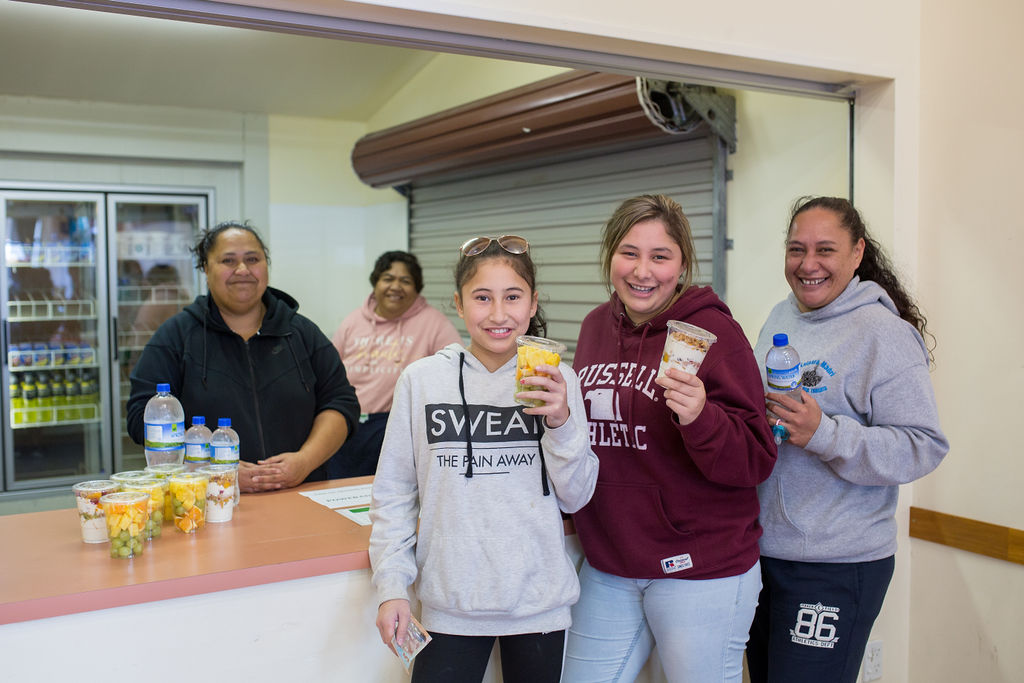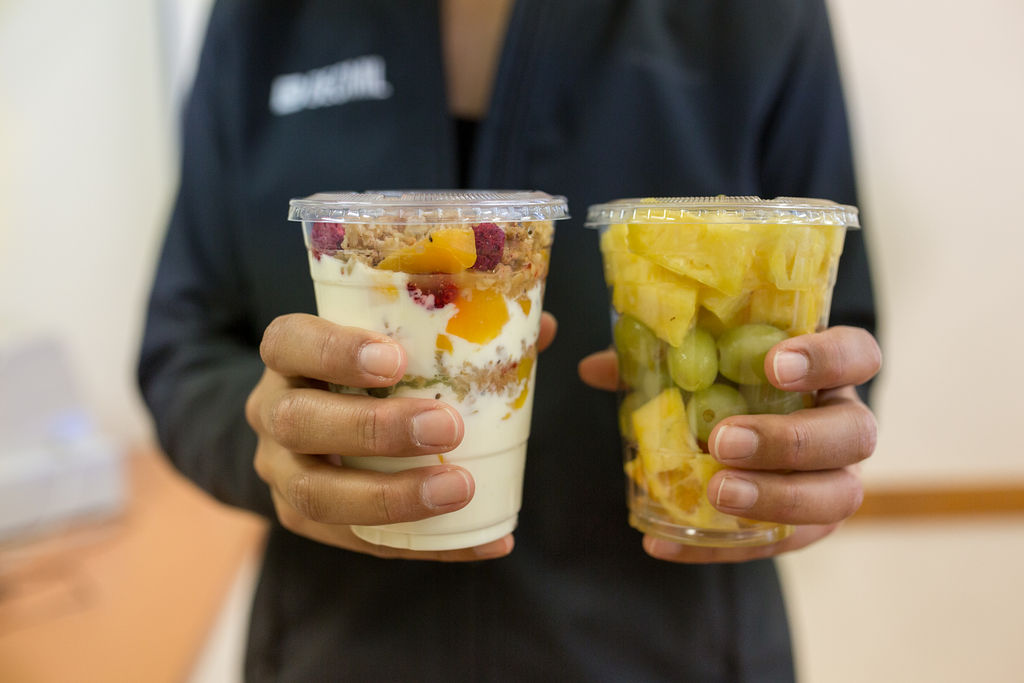
A ‘health by stealth’ approach to the food system at Papakura Netball Centre has been adopted by the sports venue this year to help make healthy food and beverage choices, the easiest choice.
During the 2018 netball season, the centre trialled a new approach to the tuck shop and cafeteria offerings on site. Both food services had been operating for decades and had become well known for selling deep fried foods, ice cream, lollies, chips and, sugar sweetened beverages.
The cafeteria was under contract and, over the 15 years, the contractor had tried to provide healthy options, but there was very little uptake by players and supporters.
When the contract came to an end, and the tuck shop volunteers decided to retire after two decades operating their space, Netball Centre General Manager Briar Martindale saw an opportunity for change.
“I wanted us to walk the talk,” she shares. “We have our community’s best interest at heart and, in a small way, we can contribute towards the encouragement of healthy lifestyles. Healthy eating goes hand in hand with sport in general. By promoting what good nutrition looks like, how food fuels the body and, what fuel the body needs in order to perform at top level, we are helping our women and girls reach their potential.”
However, making drastic changes to something that has been in place for so long can attract opposition, so Briar needed to find the right approach.
Healthy Families Manukau, Manurewa-Papakura helped connect Papakura Netball Centre with the Cook Islands Development Agency New Zealand (CIDANZ). The organisation’s One Basket initiative is a family enterprise programme working with local entrepreneurs to start their own food businesses. The partnership was a perfect match.

With more than 3,000 people going through the centre each week during the netball season, both organisations wanted to change to be subtle. CIDANZ rotated six families to operate the space, creating a bridge for each family to take their service and products to market.
The collective then slowly lessened the amount of sugar sweetened beverages on offer and, reduced the number of lollies available for purchase. Smoothies, sandwiches, salads and fruit salad were introduced to the menu, alongside home baking. These healthier options were promoted ‘ready-made’ at the front of the kitchen. The deep fried foods were still available, but were moved to a ‘made to order’ option.
A fresh sushi stand was also introduced.
“It was really courageous of the centre to move into this innovative space,” says Lindsay Unuia, CIDANZ Operations Manager and the project’s lead. “Not only has the partnership given us an opportunity to trial our programme and give families an opportunity to put their dreams into practice, but it has also created positive health outcomes for the community.”
With the approach kept under wraps all season, Briar would gather feedback from club representatives at their monthly gatherings. In the first two months there were two minor complaints about food availability. The rest of the season continued without any further complaint.
“If we had taken the other option of telling everyone ‘loud and proud’ that we were promoting healthy lifestyles, we would have got push back and I would have received at least 10-20 complaints a week,” she says. “But the subtle introduction and promotion of healthier options has created a new norm.”

Over the year, there was a visible change in the uptake of sandwiches, fruit salads and sushi, as opposed to hot chips. The centre saw a huge reduction in the stock of soft drinks and, in turn, an increased uptake of water and juice.
“While we currently offer low or zero sugar drink options, we would like to eventually phase them out, too,” adds Briar.
Briar says the partnership has been a huge turnaround for the centre and Lindsay is excited to see what 2019 will bring.
“I definitely knew from the start this was something we were pioneering,” he says. “Next year we will be back with a lot more confidence, innovation and a whole lot more healthy food alternatives.”
Both organisations want to see other centres adopt the approach and combine community enterprise with positive health outcomes for all.



